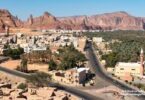Valentina Shvartsman
Japan has a new, jubilee, hundredth prime minister. This time it was 64-year-old Fumio Kishida. His predecessor, Yoshihide Suga, lasted less than a year and is remembered for the controversial decision to hold the Summer Olympics in the country despite the growing incidence of COVID-19 and public discontent. The new prime minister inherited a difficult legacy: a difficult epidemiological situation, discomfort from the growing power of China and complete uncertainty over the signing of a peace treaty with Russia. However, the problem of Russian-Japanese relations is close to Kishida – during his time as Minister of Foreign Affairs, he repeatedly negotiated and, they say, even drank with his Russian counterpart Sergei Lavrov… What is Fumio Kishida known for, what to expect from this politician and what is the likelihood that he will become the prime minister who will put an end to the long-term conflict with Russia, “Lenta.ru found out .
Continuing traditions
Like many Japanese politicians, Kishida is a third-generation hereditary official: his father and grandfather were members of the Japanese parliament from the constituency of Hiroshima. The new head of the Cabinet is also a distant relative of Kiichi Miyazawa, Prime Minister of Japan in 1991-1993.
For Japan, this is a fairly typical picture: labor dynasties that pass on the craft of politicians from generation to generation, right down to electoral districts
In this sense, Kishida’s predecessor at the prime minister’s post, Yoshihide Suga, who grew up in a family of farmers and made his way from the bottom, is rather an exception to the rule, Valery Kistanov , head of the Center for Japanese Studies at the Institute for Far Eastern Studies of the Russian Academy of Sciences , told Lente.ru .
In the 1970s, Kishida’s father worked in a Japanese trade mission in New York , so the future prime minister spent his childhood in the United States, where he studied at the most ordinary American school. Returning to Japan, he entered the prestigious Waseda University only on the fourth attempt. True, by his own admission, despite all the hardships of admission, the future politician liked playing basketball much more than studying during his university years.
Can repeat75 years ago, Japan was banned from having its own army. Why did the country decide to regain the right to fight?
After graduating from high school in 1982, he decided to try his hand at banking, but soon changed his mind and followed in the footsteps of his father and grandfather. Thus began his journey to the very top of the Japanese political Olympus. Already in 1993, Kishida was elected to the House of Representatives of the Japanese Parliament.
In 2007, he received his first cabinet position, becoming Minister of Okinawa and Northern Territories Affairs (as Japan calls the southern Kuril Islands, which remain the subject of a territorial dispute between Tokyo and Moscow ). His career leap fell on a difficult period in Japanese politics, which experts often call the era of “revolving doors”: from 2006 to 2012, six prime ministers were replaced in the country. Along with the change of prime ministers, the role of Kishida in the Cabinet of Ministers also changed: he spent only a year as the Minister of the Northern Territories and subsequently held the posts of Minister of Consumer Affairs and Food Safety and Minister of Science and Technology.
In 2012, he led one of the oldest and most powerful factions within the ruling Liberal Democratic Party of Japan (LDPJ), which significantly strengthened his position and turned him into one of the most influential politicians in the country.
In the same year, Kishida received the post of Minister of Foreign Affairs in the government of Shinzo Abe . Like his boss, the absolute record holder for being in the prime minister’s chair, Kishida also set a record. He headed the country’s Foreign Ministry for nearly five years – longer than all of his predecessors in the country’s post-war history.
In this capacity, Kishida organized the first ever visit of US President Barack Obama to the memorial to those killed in the atomic bombing of Hiroshima.
In addition, the diplomat managed to repeatedly meet and even have a drink with his Russian counterpart Sergei Lavrov. Kishida is generally known for drinking. According to him, alcohol occupies a very important place in Japanese diplomacy.
The Japanese diplomat said that once, during one of the working lunches in Moscow, the delegations were brought out glasses of vodka and continued to pour generously all the time the negotiations were going on. Kishida promised on Lavrov’s next visit to Japan to pull off a similar trick, but with Japanese sake, threatening to win in the “Russian-Japanese alcove”. Whether the battle took place and who gained the upper hand – history is silent.
The Japanese media write that Kishidu is distinguished by the ability to understand people and listen to others, but he lacks communication skills.
Three portraits hang in Kishida’s office: Masaki’s grandfather, Fumitake’s father, and Kiichi Miyazawa. The latter, according to his entourage, is generally a role model for the new prime minister. Thus, a politician often likes to repeat Miyazawa’s words: “Those in power should not forget about modesty.” He adheres to this dogma in rather ordinary things – for example, he orders cheaper dishes in restaurants and sits down at smaller tables. He does not hesitate to do household chores – in the family he is responsible for washing dishes and cleaning the bathroom.
Kishida first spoke about his ambitions to become prime minister in 2016. Such an opportunity presented itself as early as 2020, when Abe resigned for health reasons. But in the after-hour elections, the leader of the ruling LDPJ (who automatically becomes prime minister) was won by the secretary general of the Cabinet of Ministers Yoshihide Suga.
As one of his confidants said, the defeat was a strong blow for Kishida: the politician doubted whether he should fight for the prime minister’s seat again. “But this time something clicked in him. When he decided to nominate himself, he turned from a gentle person who just goes with the flow into a real fighter, ” says the deputy Yesimasa Hayashi.
Apparently, the fighting qualities, along with the intricacies of Japanese party politics, ultimately paid off: on September 29, Kishida was elected chairman of the Liberal Democratic Party. For some observers, this turn of events came as a surprise. Both public opinion polls and the mood of rank-and-file members within the party pointed to a completely different favorite – Taro Kono.
Like his opponent, Kono managed to serve as the country’s foreign minister. And at the beginning of 2021, he was entrusted with the post of minister responsible for vaccination. And if the pandemic cost Yoshihide Suga the prime minister’s chair, then she allowed Kono to earn political points. According to opinion polls, 46 percent of the population wanted to see a politician in the prime minister’s post, while only 17 percent of those polled supported Kishida’s candidacy.
In addition to Kono and Kishida, two women participated in the race for the post of LDPJ chairman: former Interior Minister Sanae Takaichi and Seiko Noda. But, according to Valery Kistanov, the women candidates initially had no chances, and this was well understood by the leadership of the Liberal Democratic Party. “In Japan, a woman prime minister is something odious. This is largely due to the fact that the position of women in Japanese society, despite all the democratic reforms in the post-war period, remains difficult, ”he said.
And when Noda and Takaichi dropped out of the race, and Kono and Kishida got into the second round of voting, the key role was played not by the mood of the public and ordinary members of the Liberal Democratic Party, but the opinion of the political elites, the Japanese scholar emphasized. The faction leaders opted for the more compliant Kishida rather than the more popular Kono, fearing the latter’s “reformist habits”
Brad Glosserman, a professor at Tama University in Tokyo, is completely inclined to believe that all voting, including the use of female candidates as “spoilers” Kono had no chance.
In an interview with Lenta.ru, the political scientist suggested that Kishida simply suited the LDPY “old guard” more: they needed someone who, like Suga, would maintain the status quo, while Taro Kono was a “dark horse”. “If the Liberal Democratic Party wanted to see a popular politician in the leadership who would enjoy sympathy not only among the rank-and-file members of the party, but also outside it, they would have chosen Kono,” the expert noted.
All Quiet on the Japanese Front
According to Kistanov, the main task of Kishida at the prime minister’s post will be the fight against coronavirus. At the same time, in foreign policy, he will adhere to the same course as Abe.
While still the head of the Foreign Ministry, Kishida clearly outlined his position on the Kurils, comparing the territorial dispute over the islands with the Ukrainian crisis and the annexation of Crimea – in both cases, he said, Russia “used force to change the status quo.” And despite the politician’s alcoholic drink with Lavrov and his love for the novels of Fyodor Dostoevsky , one cannot expect significant breakthroughs in Russian-Japanese relations from the new prime minister.
This is primarily due to the fact that the negotiations themselves have reached a dead end: Japan does not want to conclude a peace treaty without agreements on the return of the southern Kuril Islands, while Russia insists on dividing the issue of signing the document and the territorial dispute. “It’s like a conversation between a deaf and a blind,” Kistanov emphasized.
Glosserman agrees with him: the parties have absolutely no reason to make any compromises. In the current geopolitical conditions, the only option under which Japan and Russia could conclude some kind of deal is a serious deterioration in relations between Moscow and Beijing.
No Japanese prime minister can afford to conclude a peace treaty with Russia without returning the islands. And no Russian president will give up Russian territories
In 2017, Kishida, having replaced the post of Foreign Minister for the post of head of the LDPJ Political Council, opposed himself to Shinzo Abe. Abe, he said, was more of a conservative and “hawk”, while Kishida considered himself a liberal and a “dove.” But now, in the face of growing tension between Beijing and Washington, Japan’s main ally, the Japanese prime minister will be required to have qualities different from those of a party functionary.
Therefore, during the election campaign, Kishida chose far from peaceful rhetoric towards China. He also pledged to establish a new post as adviser to the prime minister on human rights abuses in China and work closely with the United States and other “like-minded democracies” to combat Beijing’s growing influence.
All this allows us to conclude that the main focus of the new Japanese prime minister will be the containment of China and its military-political ambitions, Kistanov said. To this end, Japan will continue to further increase its military spending and build up its military capabilities.
“It’s hard to imagine Japan becoming even more pro-American,” said Glosserman. “They support any initiatives in Washington and even get offended when they are forgotten.” So, in Tokyo, they were unhappy that they were not invited to the new alliance of the USA, Great Britain and Australia (AUKUS).
In domestic politics, Kishida has already promised a number of changes, in particular, by promising to create a “new capitalism” in the country.
Economic growth remains an extremely important political topic. But if the fruits of this economic growth are not properly distributed, it will not stimulate consumption and demand and will not lead to new economic growth. Without the distribution of benefits, there will be no development. I am committed to creating a cycle of economic growth and distributing its benefits. I want to create an economy in which people can live in abundance
According to him, the priority of his cabinet will be science, technology and innovation: the authorities will invest in green technologies, artificial intelligence, quantum and biotechnology. Perhaps it was precisely for the search for funding sources that Kishida proposed to increase the capital gains tax, which has already hit the Japanese stock exchange.
At the same time, pressing tasks will clearly prevent the new prime minister from tackling more fundamental issues of domestic politics, such as amending article 9 of the Japanese constitution, which prohibits the country from having an army and starting wars.
Glosserman summed up his expectations of the new administration: “Four words are the same.”
Suga’s tenure as prime minister for less than a year raises fears that Japan is once again returning to the era of revolving doors with an endless line of temporary workers in the prime minister’s chair. Experts interviewed by “Lenta.ru” found it difficult to assess Kishida’s chances to stay in office significantly longer than his predecessor. Whatever his experience and political capital, it is now too difficult to judge which of him will be the prime minister.
One thing is clear: a lot rests on the parliamentary elections scheduled for late October. If the Liberal Democratic Party significantly loses its positions, then Kishida may face the same fate as Sugu, and the “revolving doors” of Japanese politics will push him out of the political Olympus sooner than he would like.
Courtesy: (lenta.ru)






